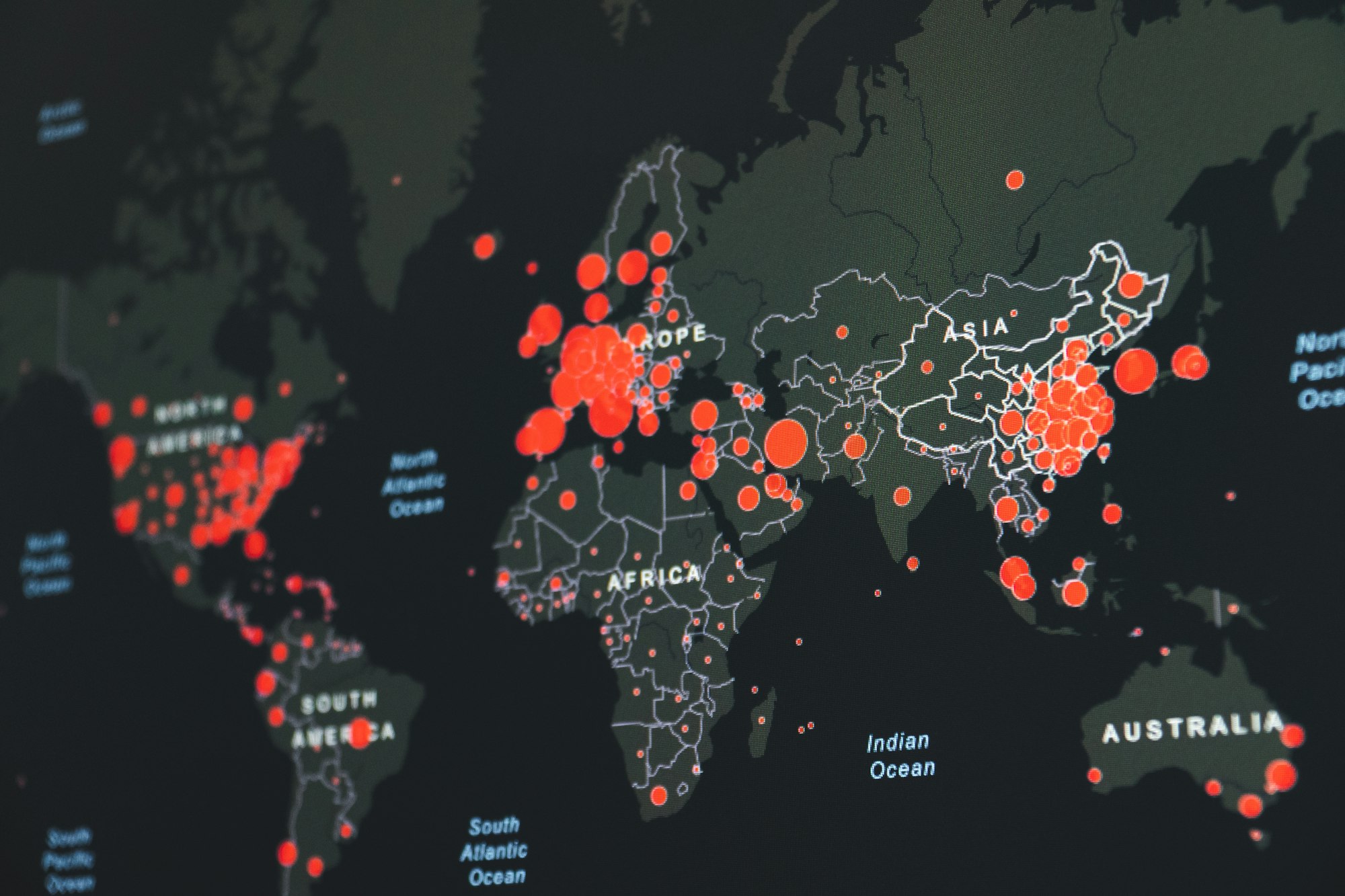By Emily Barritt and Carmen Pavel (external contributors)
People bolted shut in their apartment buildings in China for weeks on end; workers beaten by the police in the streets of India trying to get home with only hours’ notice of strict curfews; children unable to leave their homes for months in Spain; parents systematically separated from their new-borns in Slovakia. These are only some examples of policies which raise important questions about the legitimate use of government power during the Covid-19 pandemic.
In all the urgency of halting the progress of the virus, there was little opportunity, or indeed appetite, to critically assess the policy choices that lay behind government pandemic decision-making across the world. As a result, there was insufficient scrutiny of the powers used by governments to implement those choices. Why this narrative has been so quiet is understandable – the virus has wrought indiscriminate devastation and the fear of the destructive unknown dominated how all of us have responded. A common error in collective decision-making, however, is for the urgent to replace the important and this mistake characterises how many governments have responded to the crisis.
In this blog symposium we begin a careful but critical conversation about the scientific, ethical, and legal choices that have been made by governments in forming pandemic policy. We open this conversation acutely aware of the toll many have borne, and continue to bear, as a result of the virus; in all the ways its devastating impacts have manifested. This is not intended as some provocative academic debate between those in an ivory tower who have, for the large part, been able to carry on their privileged existence. Instead, it is a response to the duty that comes as part of our privilege and from a shared concern about how government power has been used and abused in the face of this pandemic.
1. Science and Policy
Shaping government actions in response to Covid-19, have been a series of scientific models about how the virus spreads, how to reduce rates of infection, and ultimately how to stop people from dying. Early on in the life of the pandemic, the ugly spectre of heard immunity was posited as a possible and necessary goal, that might be achieved by not acting at all. In the UK in particular, there was then a dramatic swing from a mercenary pursuit of a population-wide immunity to complete restriction of liberty without more reflection on the grounds for alternative strategies in between. In part, these wild shifts were shaped by rapidly changing models as scientists scrambled as much as governments to understand this new phenomenon. Demonstrating that the relationship between science and policy is not easy, policy choices have demonstrated that the slogan ‘follow the science’ has many meanings, not all of which are defensible as models for public policy.
The complexity of this relationship is hardly a novel phenomenon. In the context of environmental decision-making, for example, scientific uncertainty about the impacts of environmental harms is a guiding concern. As a result, environmental lawyers have developed principles to help temper the inherent uncertainty in making choices about the environment.
Science and policy need to be mixed with care, remembering that scientific claims are never value neutral, as Erik Angner and Eric Winsberg explain in their contributions. Further, pandemic policy appears to have been shaped by scientific models without sufficient scrutiny of their purpose or value. As a result, models can incidentally shape behaviour rather than accurately predict it.
Failing to address these value-based and purposive considerations thus elevates expertise to a form of technocratic decision-making that lacks the necessary democratic scrutiny and accountability. Joelle Grogan addresses these concerns in her piece, and further highlights the problem of elevating certain forms of expertise over others.
2. Ethical trade-offs
Alongside the complex calculations about scientific risk, were a set of ethical trade-offs that, for the large part, governments neglected to consider. This was not simply a question of stopping the virus versus maintaining economic development, as much of the discourse seemed to imply. In the all-consuming desire to prevent people from dying from this terrible virus, questions about who else suffered were suppressed and the consequences of draconian action delayed. The cancer patients who have had essential treatment delayed, the mothers who gave birth alone, the people in care homes kept from vital loving contact, the victims of domestic violence locked in with their abusers, and the children, particularly those from economically marginalised backgrounds, who have lost significant development and learning opportunities are all deserving of thoughtful consideration.
A more subtle, but equally difficult ethical question that has been exacerbated by the pandemic, has been the way in which pandemic responses have shaped our view of the other. Thomas Schramme’s contribution addresses the issue of health capital, highlighting the ways in which the pandemic has heightened inequalities around health and the sense in which others are a threat. An acute example of this is the way in which racism has intensified against people of East Asian heritage. But the delicate and difficult task of balancing these competing and complex interests has been neglected, leaving open the possibility of other, more serious crises in the future.
3. Legitimate exercise of government power
Finally, at the heart of our concerns about the pandemic response, was an unprecedented and extreme exercise of government power. Tim Fish Hodgson and Melanie Murcott explore one such example of a tobacco ban introduced by the Government of South Africa, designed to free up hospital beds during the crisis. However, this is not simply a question about unprecedented restrictions of liberty and the forms of authority used to enforce those restrictions. It is also about how those restrictions were created. The rushing through parliament of unscrutinised legislation to creates additional, unchecked power for the sitting government, is never an appropriate, constitutional response. (This all goes without saying that in imposing restrictions, there have been notable examples of government actors failing to abide by their own restrictions or relying on exceptions ordinary citizens were kept unaware of.) Crucially, as David Mednicoff explains in his contribution, even before the pandemic, the creep of executive power permeated many democratic jurisdictions. Covid-19 restrictions simply served to amplify this problem.
We operate within constitutional frameworks because we recognise that government power should always be restrained and supervised. But in responding to the pandemic these foundational constitutional principles have been neglected. Constitutional provisions and the rule of law are not attractive artifices to signal you are the right kind of state, they are essential safeguards for when things are difficult.
4. The search for principle
In beginning this conversation, we want to work towards a set of principles that guide how governments respond to emergencies like pandemics. Principles that shape what restrictions on liberty are justified, how to use science well, and how to balance difficult ethical trade-offs. It is not sufficient to have a pandemic response that focuses solely on procuring equipment and border closures. Our pandemic responses also need to contend with the profoundly hard choices that need to be made, and principles can help.
TWEET
